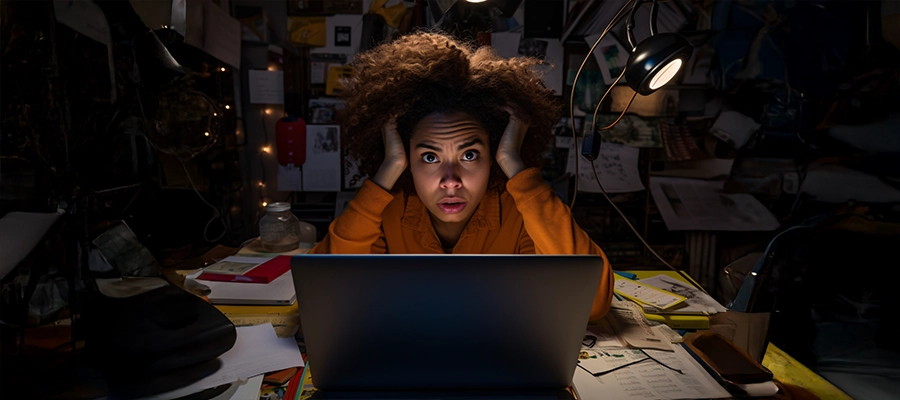As a therapist, I’ve noticed a surprising trend over the past few years, more and more clients are coming to me with the same confession: "Working from home is destroying my mental health... but I feel guilty saying that."
Take S, a 32-year-old marketing manager. At first, remote work felt like a dream to her, no commute, comfy clothes, lunch in her own kitchen. But after a year, she found herself crying before Zoom meetings, mindlessly scrolling through work Slack at 11pm, and feeling like she was "failing at being happy" when everyone else seemed to love working remotely.
S’s story isn’t unique. The psychology behind remote work reveals a complex mix of benefits and emotional risks that nobody warned us about.
The Psychological Pitfalls of Remote Work (That Nobody Talks About)
1. "The Ghost Office Syndrome"
J, a software developer, told me: "I didn’t realize how much I relied on casual desk chats to feel human until they disappeared. Now I’ll go days without speaking aloud."
- What’s happening: Our brains are wired for micro-interactions, the smile at the coffee machine, the overheard joke. Without them, we experience low-grade social starvation
- Therapist tip: Schedule "fake commute" walks before/after work to simulate transition time
2. The 24/7 Productivity Guilt Trap
M, a project manager, works from her tiny apartment kitchen table: "My laptop is always there judging me. Even on Sundays, I catch myself checking emails like a nervous tic."
- What’s happening: Without physical separation, work becomes an ambient anxiety that never turns off
- Therapist trick: Use visual cues, a literal tablecloth over your laptop after hours signals "work is closed"
3. Zoom Grief (It’s Not Just Fatigue)
A teacher, confessed: "I miss my students’ energy. Onscreen, I feel like I’m performing for ghosts."
- What’s happening: Video calls lack embodied cognition, we miss the subconscious body language that makes communication fulfilling
- Psychological fix: Alternate with phone calls (voice-only reduces cognitive load)
Why Some People Are Secretly Struggling More Than Others
In my practice, I’ve noticed three personality types who are especially vulnerable:
1. The Extroverted Energizer Bunny:
- Thrives on office buzz, now feels like a deflated balloon.
- Solution: Create "fake coworking" sessions via FaceTime with a colleague
2. The Anxious Overcompensator
- Works twice as hard to "prove" they’re not slacking
- Solution: Set artificial deadlines like "I must close my laptop by 6pm even if unfinished"
3. The Boundary-Blurred Parent
- Stuck in eternal tug-of-war between daycare and deadlines
- Solution: Negotiate core hours with boss (e.g., 10-2 are sacred work hours)
Survival Strategies
1. Hack Your Dopamine
- Problem: No natural "win" moments (like leaving the office)
- Fix: Create deliberate closure rituals, light a candle when work starts, blow it out when done, music helps too
2. Cure the "Invisible Work" Effect
- Problem: Without witnesses, effort feels meaningless
- Fix: Keep a "got done" list (more satisfying than to-do lists)
3. Treat Loneliness Like Hunger
- Problem: We ignore social needs until we’re desperate
- Fix: Schedule "social snacks"—a 5-min GIF exchange with a coworker, voice notes instead of emails, video calls (if possible)
When to Seek Help (The Red Flags)
As a psychologist, I worry most when clients show:
- Sleep-wake cycle collapse (working till 3am, waking at noon)
- Emotional flatlining (nothing feels rewarding anymore)
- Secret shame cycles ("I should be grateful for this setup")
If this sounds familiar, remember: Struggling with remote work doesn’t mean you’re failing at flexibility, it means you’re human. The office wasn’t just a place to work; it was an ecosystem that quietly met psychological needs we didn’t know we had.
The good news? With awareness and small adjustments, we can rebuild those needs in new ways. Your mental health isn’t the price you owe for flexibility, it’s the foundation that lets remote work actually work for you.

